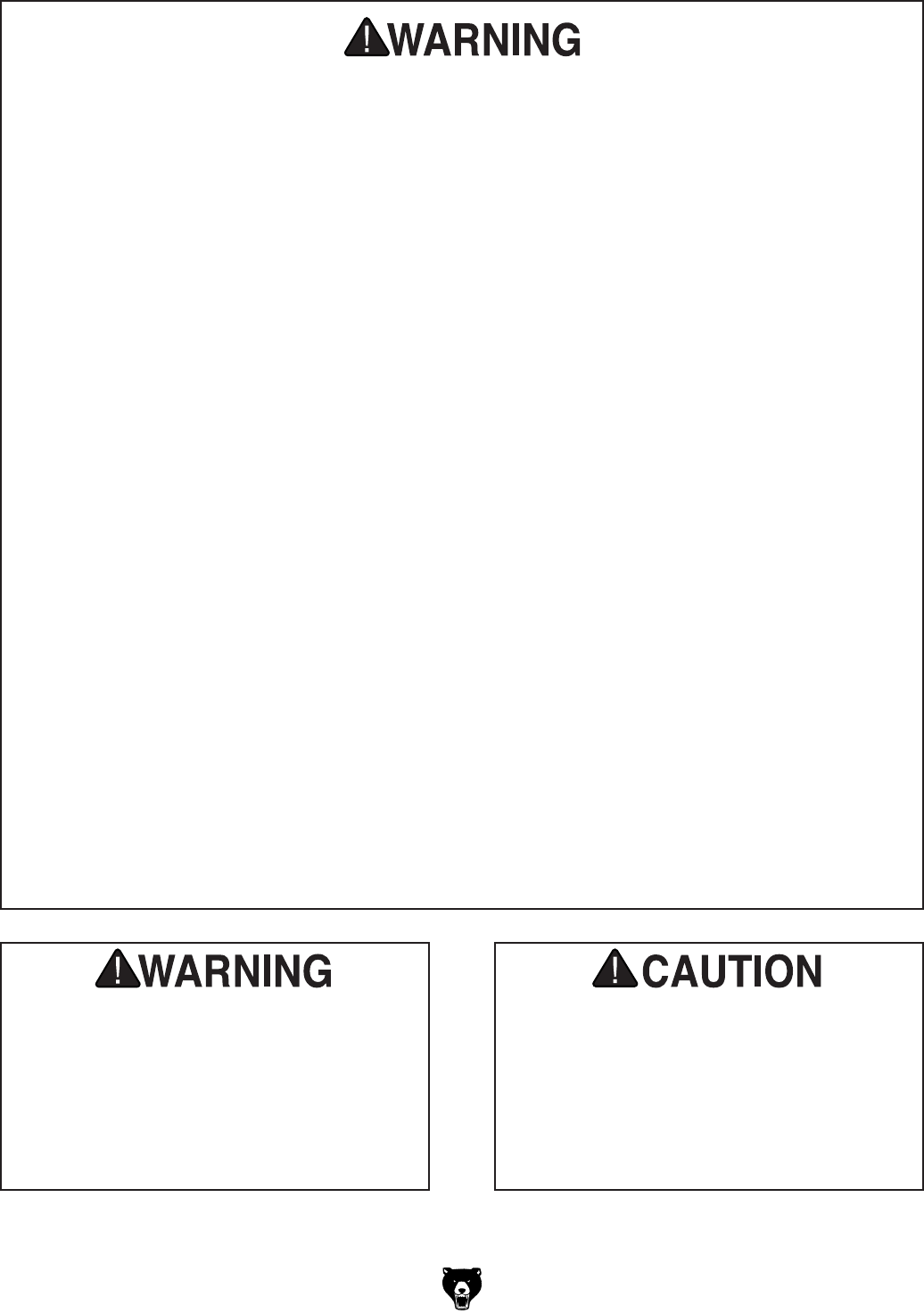
G0458 18" Open End Belt/Drum Sander
-7-
Additional Safety for Drum Sanders
6. DUST COLLECTION SYSTEM. Never
operate the sander without an adequate
dust collection system in place and run
-
ning.
7. UNATTENDED OPERATION. N
ever leave
the machine running unattended.
8. REPLACING SANDING PAPER
. Replace
sanding paper when it becomes worn.
9. EXPERIENCING DIFFICULTIES. Any
problem, with the exception of convey-
or belt tracking that is concerned with
any moving parts or accessories, must be
investigated and corrected with the power
disconnected, and after all moving parts
have come to a complete stop.
10. MAINTENANCE AND ADJUSTMENTS.
Never attempt to adjust conveyor belt track
-
ing when the sanding drums are engaged.
Perform machine inspections and main
-
tenance service promptly when called for.
Disconnect power before performing main
-
tenance or adjustments on the sander.
11. RESPIRATOR AND SAFETY GLASSES.
Always wear a respirator and safety glass
-
es while operating the machine. Dust and
chips are created when sanding. Some
debris will be ejected, becoming hazards to
the eyes and lungs.
1. FEEDING STOCK. DO NOT allow anyone
to stand at the outfeed end when feeding
your stock.
Never sand more than one
piece of stock at a time.
DO NOT jam the workpiece into the
machine during operation. Firmly grasp the
workpiece in both hands and ease it into
the machine using light pressure.
2. MINIMUM STOCK DIMENSIONS. DO NOT
sand any stock thinner than
1
⁄8", narrower
than
1
⁄8", or shorter than 6". DO NOT sand
thin stock by using a “dummy” board under
your workpiece.
3. CLOTHING. DO NOT wear loose clothing
while operating this machine. Roll up or
button sleeves at the cuff.
4. HAND PROTECTION. DO NOT
place
hands near, or in contact with, sanding
drums during operation. DO NOT allow
fingers to get pinched between board and
conveyor belt during operation. This may
pull the operator’s hand into the machine
and cause serious injury or death!
5. INSPECTING WORKPIECES. Always
inspect workpiece for nails, staples, knots,
and other imperfections that could be dis
-
lodged and thrown from the machine during
sanding operations.
No list of safety guidelines can be complete.
Every shop environment is different. Always
consider safety first, as it applies to your
individual working conditions. Use this and
other machinery with caution and respect.
Failure to do so could result in serious per-
sonal injury, damage to equipment, or poor
work results.
Like all machines there is danger associated
with this machine. Accidents are frequently
caused by lack of familiarity or failure to pay
attention. Use this machine with respect
and caution to lessen the possibility of
operator injury. If normal safety precautions
are overlooked or ignored, serious personal
injury may occur.
